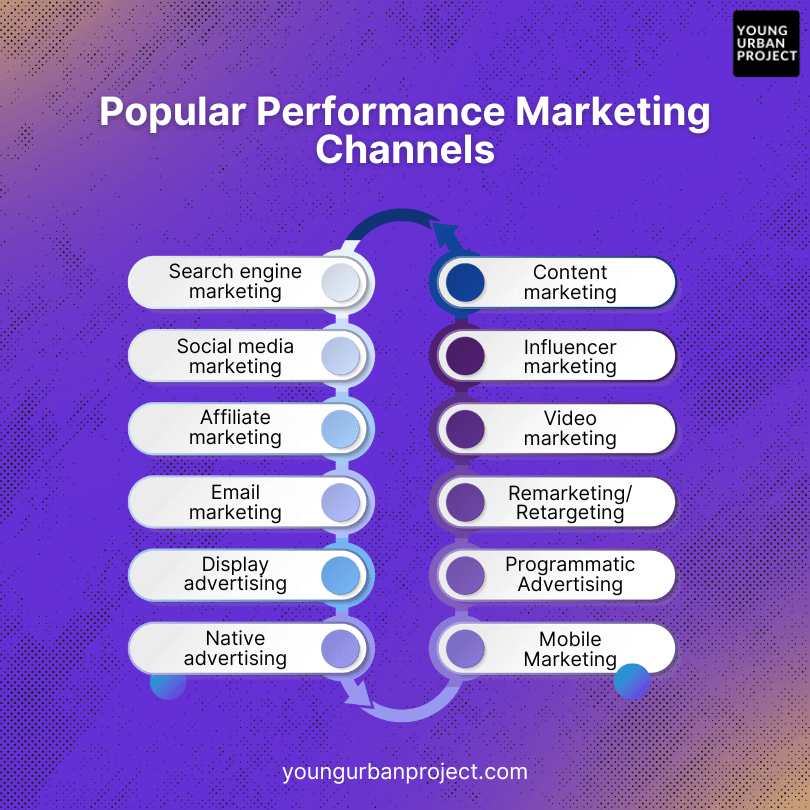
Performance Marketing: Driving Measurable Business Growth
In the ever-evolving world of digital marketing, businesses are constantly searching for strategies that not only reach audiences but also deliver measurable results. One such strategy that has gained immense popularity in recent years is Performance Marketing. This approach has reshaped how brands promote their products and services by ensuring that every marketing dollar spent yields quantifiable outcomes. But what exactly is performance marketing, and why has it become such a buzzword in the marketing industry? Let’s explore.
What is Performance Marketing?
Performance marketing is a form of digital marketing where advertisers only pay when a specific action occurs. This could be a click, lead, sale, or any other predefined goal. Unlike traditional advertising methods such as TV or print ads where brands pay upfront for exposure without guaranteed results, performance marketing focuses solely on performance-driven results.
Some of the most common models under performance marketing include:
- Cost Per Click (CPC): Advertisers pay each time a user clicks on their ad.
- Cost Per Mille (CPM): Payment is made per thousand impressions (ad views).
- Cost Per Acquisition (CPA): Brands pay only when a desired action like a purchase or sign-up occurs.
- Cost Per Lead (CPL): Payment is made when a lead (potential customer) is generated.
This model allows companies, especially small and medium-sized businesses, to control their advertising spend while maximizing returns.
Why Performance Marketing is Essential for Modern Businesses
- Measurable Results:
The biggest advantage of performance marketing is its measurability. Every click, lead, or sale can be tracked using analytics tools like Google Analytics, Facebook Ads Manager, or dedicated performance marketing platforms. This data-driven approach allows businesses to understand what’s working and optimize their strategies in real time. - Cost-Effectiveness:
Since brands only pay when a specific result occurs, the risk of wasting advertising budgets on ineffective campaigns is significantly reduced. This model is ideal for startups and small businesses with limited marketing budgets. - Scalability:
Performance marketing campaigns can easily be scaled up based on the performance data. If a certain ad set is driving more conversions, marketers can allocate a higher budget to that campaign to boost sales. - Diverse Channel Opportunities:
Performance marketing spans across various platforms such as Google Ads, Facebook, Instagram, LinkedIn, affiliate networks, and influencer collaborations. This multi-channel approach allows businesses to reach their target audience effectively.

Key Channels in Performance Marketing
- Search Engine Marketing (SEM):
Platforms like Google Ads help businesses show ads to users actively searching for related products or services. This intent-based marketing leads to higher conversion rates. - Social Media Advertising:
Platforms such as Facebook, Instagram, and LinkedIn allow precise targeting based on demographics, interests, and behaviors. Marketers can optimize ads for clicks, engagement, or conversions. - Affiliate Marketing:
In this model, affiliates (partners or influencers) promote a company’s products in exchange for a commission on each sale or lead generated through their unique tracking links. - Native Advertising:
These are ads that blend seamlessly with the content on websites or apps. They provide value while subtly promoting the product or service. - Influencer Marketing:
Brands collaborate with influencers who have a strong following. Payment is often based on the performance of the campaign, such as clicks or conversions driven by the influencer’s audience.
The Role of Data and Analytics
Data is the backbone of performance marketing. Through in-depth analytics, marketers can:
- Identify high-performing ads and audience segments.
- Optimize ad creatives and copy based on what resonates with the audience.
- Adjust bids and budgets for maximum ROI.
- Conduct A/B testing to compare different strategies and choose the best one.
By constantly analyzing campaign data, businesses can make informed decisions and improve their marketing efficiency over time.
Challenges in Performance Marketing
While performance marketing offers numerous benefits, it also comes with certain challenges:
- Ad Fatigue:
Users may see the same ad repeatedly, causing them to lose interest. Regularly updating ad creatives is essential. - Privacy Concerns:
With growing regulations like GDPR and restrictions on third-party cookies, tracking user data is becoming more complex, potentially impacting campaign effectiveness. - High Competition:
As more businesses adopt performance marketing, the cost per click or conversion may increase in competitive industries. - Fraud Risk:
Especially in affiliate marketing, there’s a risk of click fraud or fake leads. Brands must work with trusted partners and use fraud detection tools.
Best Practices for Successful Performance Marketing
- Set Clear Goals:
Define what you want to achieve – is it more website traffic, higher sales, or increased app downloads? Clear objectives guide campaign creation and optimization. - Know Your Audience:
Understand who your ideal customers are, their interests, and online behavior. This helps in precise targeting and crafting relevant messages. - Test and Optimize Continuously:
Run A/B tests on different ad creatives, headlines, and call-to-actions. Monitor performance closely and make data-driven adjustments. - Use Retargeting:
Reach out to users who have previously interacted with your brand. Retargeting ads often lead to higher conversion rates. - Work with Reliable Partners:
In affiliate or influencer marketing, partner with credible and quality-focused individuals or networks to avoid fraud and ensure real results.
Conclusion
Performance marketing is revolutionizing the way brands approach advertising in the digital space. Its emphasis on measurable outcomes, cost-effectiveness, and scalability makes it a preferred choice for businesses of all sizes, from startups to established enterprises. However, to truly succeed in performance marketing, brands must stay updated with the latest trends, leverage data wisely, and maintain a customer-centric approach.
As digital platforms and consumer behaviors continue to evolve, performance marketing will remain an indispensable tool for brands aiming for growth, profitability, and long-term success.
If you want, I can also provide this as a PDF with images for presentation or professional sharing. Let me know!
people also read us ;Home